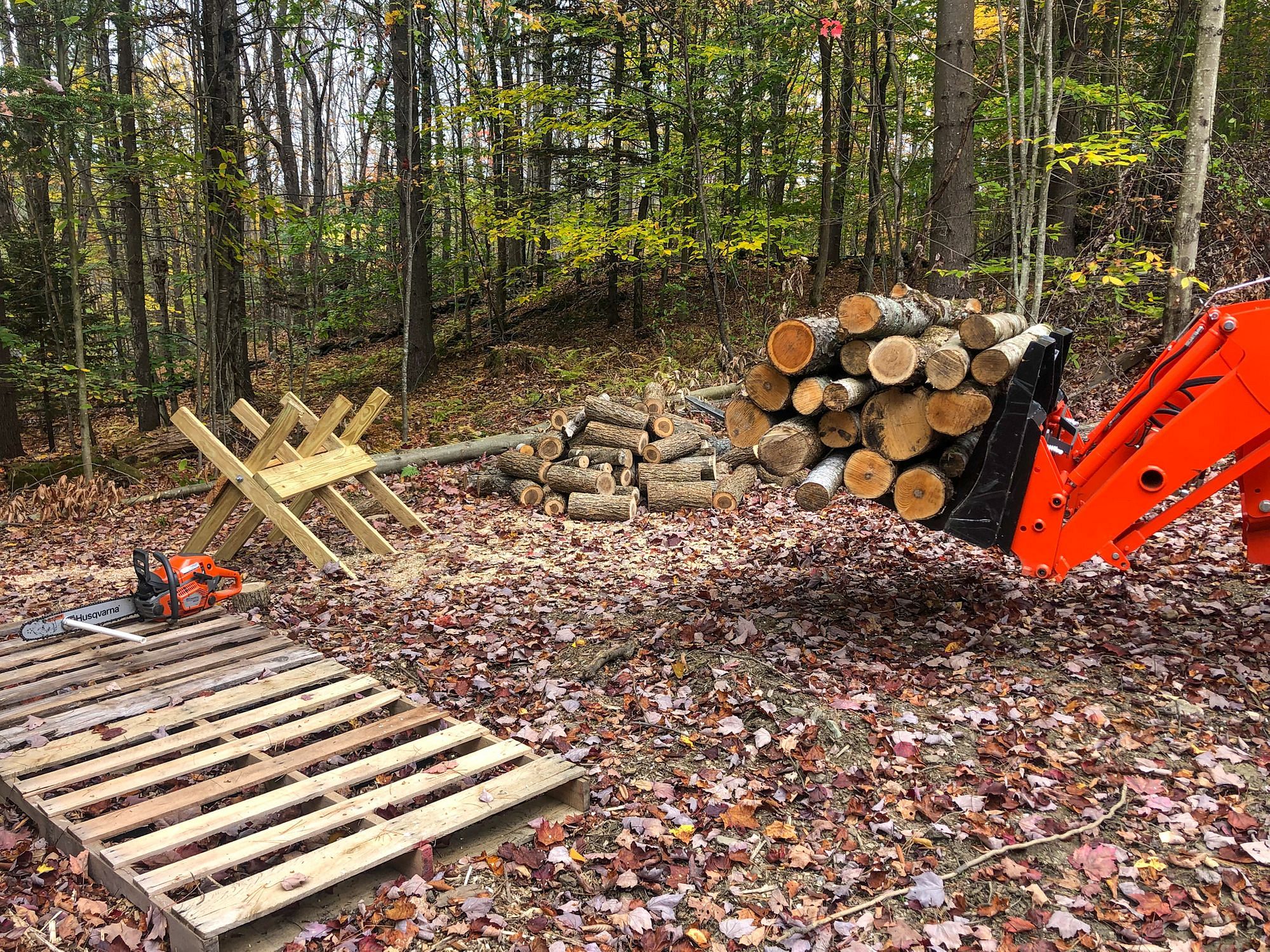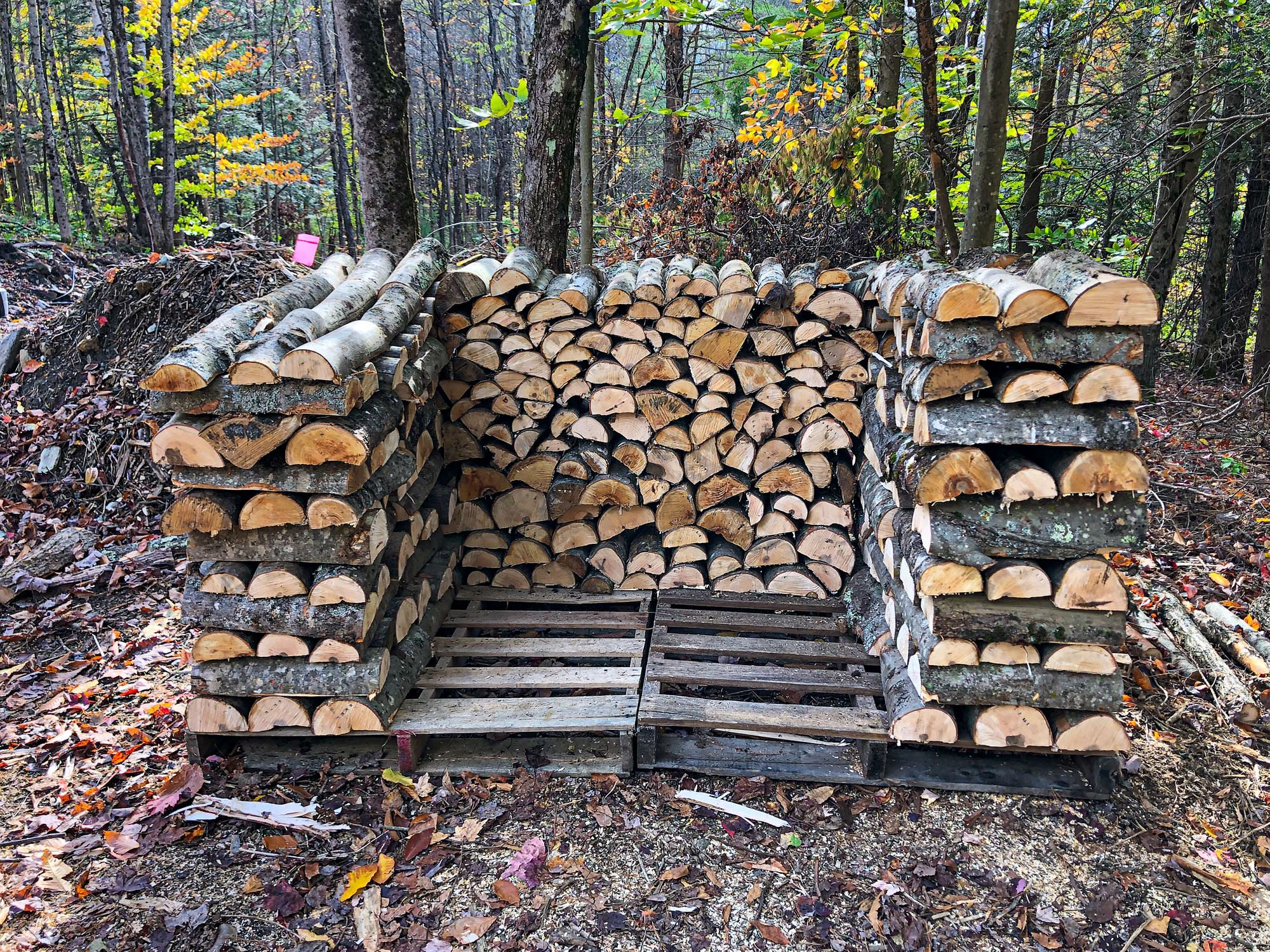Firewood is important for heating homes. It is also good for campfires. Cutting logs into firewood is not difficult. But you need to know how to do it safely.

Credit: www.youtube.com
What You Need to Saw Logs
First, you need the right tools. Here is a list of tools you will need:
- Saw
- Chainsaw (optional)
- Safety Gear
- Log Splitter (optional)
- Measuring Tape
- Axe or Maul
Saw
A saw is important for cutting logs. You can use a hand saw. But it will take longer. A chainsaw is faster. But it is also more dangerous.
Safety Gear
Safety gear is very important. Wear gloves to protect your hands. Use goggles to protect your eyes. Wear ear protection if you use a chainsaw. Wear strong boots to protect your feet.
Log Splitter
A log splitter can make the job easier. It splits logs into smaller pieces. But it is optional. You can use an axe or maul instead.
Measuring Tape
Use a measuring tape to measure the logs. This helps you cut them into equal pieces. Equal pieces are easier to stack and burn better.
Axe Or Maul
An axe or maul is used to split the logs. An axe has a sharp edge. A maul is heavier and has a blunt edge. Both can be used to split logs.
Steps to Saw Logs for Firewood
Follow these steps to saw logs for firewood:
- Choose the right logs.
- Measure the logs.
- Cut the logs.
- Split the logs.
- Stack the firewood.
Step 1: Choose The Right Logs
Choose logs that are dry. Wet logs are harder to cut and burn poorly. Hardwoods like oak and maple burn longer. Softwoods like pine burn quickly.
Step 2: Measure The Logs
Use a measuring tape to measure the logs. Cut them into pieces that are 16 inches long. This is a good size for most fireplaces and stoves.
Step 3: Cut The Logs
Use a saw to cut the logs. If you are using a hand saw, it will take more time. If you are using a chainsaw, be very careful. Hold the saw firmly. Cut the log slowly and steadily.
Step 4: Split The Logs
After cutting the logs, you need to split them. Use an axe or maul. Place the log on a chopping block. Lift the axe or maul above your head. Bring it down hard to split the log. Be careful not to hit your feet.
Step 5: Stack The Firewood
Stack the firewood in a dry place. Stack them in a criss-cross pattern. This allows air to flow through the stack. Air helps the wood dry. Dry wood burns better.
Safety Tips
Always follow these safety tips when sawing logs:
- Wear safety gear.
- Keep children and pets away.
- Do not cut logs when you are tired.
- Keep your tools sharp.
- Do not cut logs in bad weather.
Wear Safety Gear
Always wear safety gear. This includes gloves, goggles, ear protection, and boots. Safety gear protects you from injury.
Keep Children And Pets Away
Keep children and pets away from the work area. They can get hurt if they are too close.
Do Not Cut Logs When You Are Tired
Do not cut logs when you are tired. You need to be alert and focused. Tired people make mistakes. Mistakes can cause injuries.
Keep Your Tools Sharp
Sharp tools are safer and easier to use. Dull tools can slip and cause injuries. Keep your saw and axe sharp.
Do Not Cut Logs In Bad Weather
Do not cut logs in bad weather. Rain and snow make the logs slippery. Slippery logs are hard to hold and cut. Wait for good weather.

Credit: www.adventurousway.com
Frequently Asked Questions
What Tools Are Needed To Saw Logs For Firewood?
You need a chainsaw, safety gear, and a log splitter.
How Do You Safely Cut Logs For Firewood?
Wear safety gear, maintain balance, and cut slowly and steadily.
What Is The Best Type Of Wood For Firewood?
Hardwoods like oak and maple burn longer and hotter.
How Do You Prepare Logs Before Sawing?
Remove branches and ensure the logs are dry.
Conclusion
Sawing logs for firewood is easy if you know how. Use the right tools and follow the steps. Always wear safety gear and be careful. Happy cutting!
